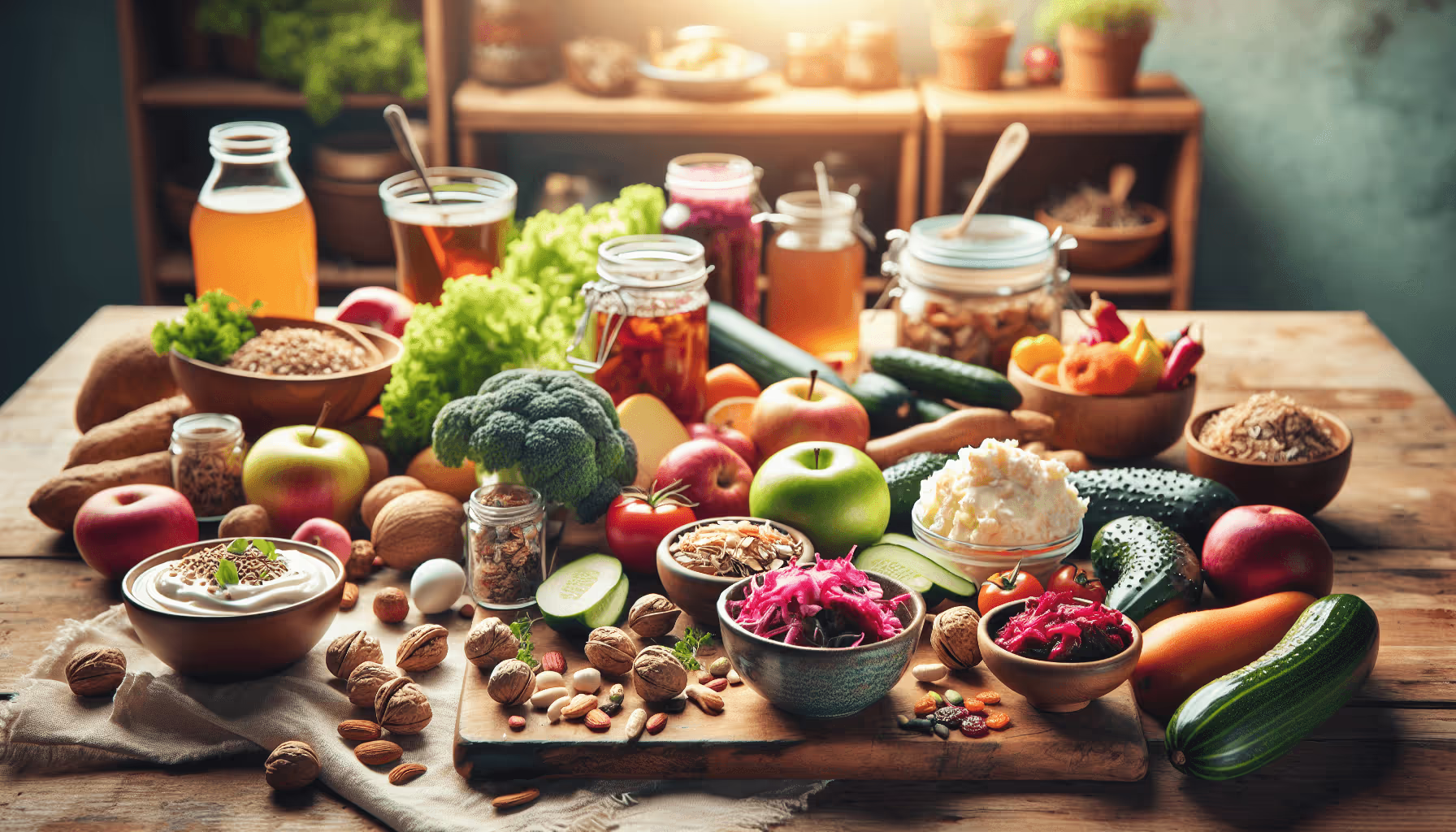Improving gut health is a cornerstone of overall wellness. The gut, often dubbed the "second brain," is integral to our body's functioning, affecting everything from digestion to immunity. If you're grappling with digestive discomfort, fatigue, or unexplained health issues, you might be experiencing symptoms of a condition known as leaky gut. This guide is crafted for those who suspect they might have leaky gut or simply wish to optimize their gut health. We’ll delve into the best foods to aid healing and those to avoid, providing practical advice for your journey to a healthier gut.
Understanding Leaky Gut
Leaky gut, or increased intestinal permeability, occurs when the intestinal walls become more porous, allowing larger, potentially harmful substances to enter the bloodstream. This can lead to inflammation and trigger an immune response, potentially causing a range of health issues. While leaky gut isn't officially recognized as a medical diagnosis, its symptoms are often associated with conditions like celiac disease and type 1 diabetes. Consulting a healthcare provider is crucial for diagnosing and treating any underlying conditions.
Common Causes of Leaky Gut
The exact causes of leaky gut are not fully understood, but several factors are believed to contribute. One key player is the protein zonulin, which regulates the tight junctions in the intestinal walls. Elevated zonulin levels can increase permeability, leading to a leaky gut. Diet, particularly the consumption of gluten, is a significant factor, especially for those with celiac disease. Other contributors include long-term NSAID use, stress, and gut bacteria imbalances. For more insights on dietary considerations, you might find the Complete Low FODMAP Food List: What to Eat & Avoid helpful.
Importance of Diet in Healing Leaky Gut
Diet plays a pivotal role in managing and potentially healing leaky gut. By focusing on foods that promote healthy gut bacteria, you can enhance digestive health and reduce inflammation. A diet rich in fiber, fermented foods, and lean proteins aids in restoring gut microbiome balance, thus supporting gut health.
Notably, a 2016 study found that a high-fiber diet supports beneficial gut bacteria, which can help reduce intestinal permeability and inflammation (Healthline, 2016). If you're considering meal planning, check out these Low FODMAP Meal Plan Delivery: Convenient & Delicious options.
Best Foods to Heal Your Gut
Certain foods are particularly beneficial for gut health. Vegetables like broccoli, Brussels sprouts, and kale are high in fiber and nutrients. Fermented foods such as kimchi, sauerkraut, and yogurt provide probiotics that help balance the gut microbiome. Lean proteins like chicken and fish, along with healthy fats from avocados and olive oil, deliver essential nutrients without straining the digestive system. Gluten-free grains like quinoa and rice offer gentle alternatives to wheat-based products. Including these foods in your diet can significantly aid in healing your gut. For specific food suggestions, refer to our FODMAP Food List: Essential Foods for Your Diet.
Foods to Avoid for a Healthy Gut
Just as some foods support gut healing, others can be detrimental. Processed foods, refined sugars, and artificial sweeteners are known to promote inflammation and disrupt gut bacteria balance. Minimizing or avoiding these is crucial for gut health. Gluten-containing grains, such as wheat and barley, can increase intestinal permeability in some people. Dairy products, alcohol, and certain oils like canola and soybean oil can also promote inflammation and should be consumed cautiously.
Sample 1-Week Meal Plan for Gut Health
Creating a gut-focused meal plan can simplify incorporating beneficial foods into your diet. Start your day with a smoothie made from Greek yogurt, bananas, and blueberries for a probiotic and antioxidant boost. For lunch, a mixed green salad with lean proteins like chicken or salmon provides essential nutrients. Dinner options might include grilled lemon chicken with sauerkraut or a stir-fry with beef and broccoli over zucchini noodles. Snacks like chia pudding or roasted chickpeas can help maintain energy levels throughout the day. Planning meals ensures a balanced intake of gut-healing foods while avoiding those that may cause harm.
References
Healthline. (2016). Leaky Gut Diet: What to Eat, What to Avoid. Retrieved from https://www.healthline.com/nutrition/leaky-gut-diet
Schwalfenberg, G. K. (2012). The Alkaline Diet: Is There Evidence That an Alkaline pH Diet Benefits Health? Journal of Environmental and Public Health. Retrieved from https://www.ncbi.nlm.nih.gov/pmc/articles/PMC3195546/






